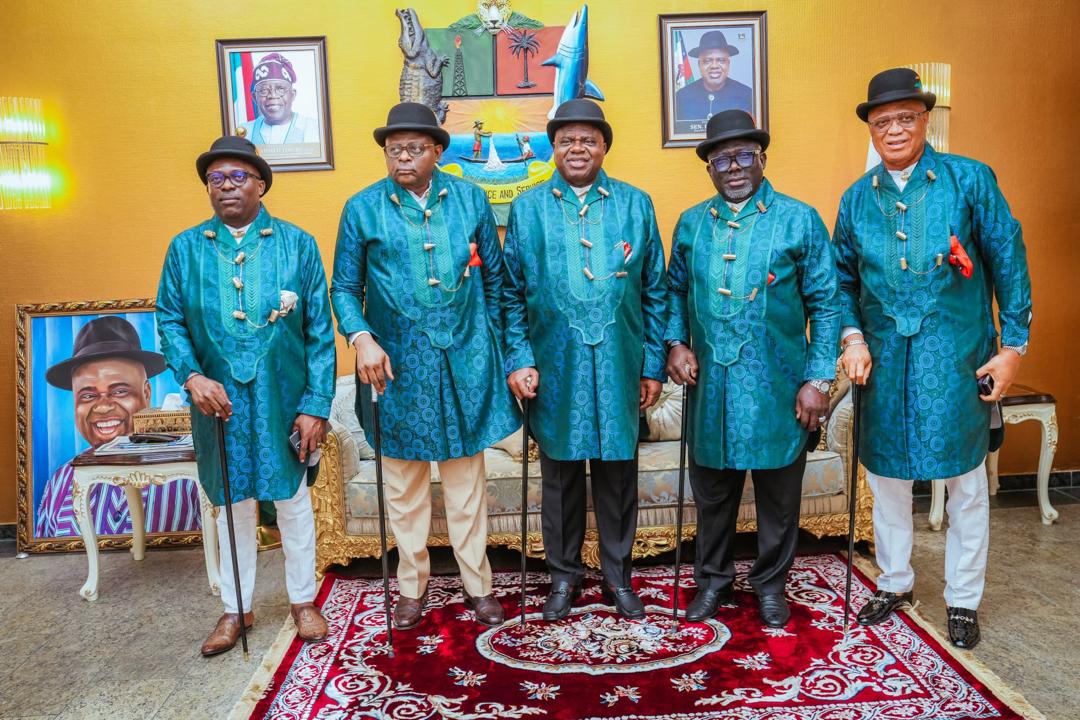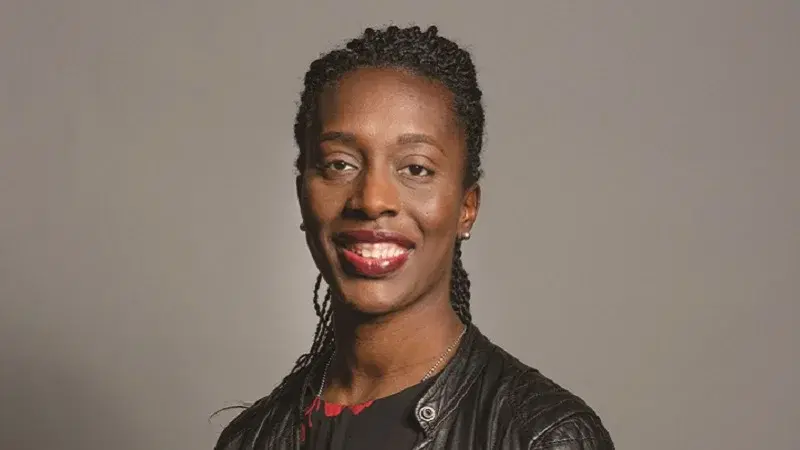News
FG To Decriminalise Attempted Suicide -Health Minister
The Coordinating Minister of Health and Social Welfare, Prof. Muhammed Pate, has stated that the Federal Government is working towards decriminalising attempted suicide in the country.
He disclosed this yesterday in Abuja at a news conference to commemorate the 2024 World Suicide Prevention Day.
Marked globally on September 10 every year, the commemoration has “Changing the Narrative on Suicide” as the theme for 2024.
The News Agency of Nigeria reports that suicide is criminalised in the country, but there have been several calls from stakeholders to decriminalise it.
Captured under Section 327 of the Criminal Code Act, it states, “Any person who attempts to kill himself is guilty of a misdemeanour and is liable to imprisonment for one year.”
Pate, therefore, said that the ministry had launched the National Suicide Strategic Framework (2023-2030) to enhance mental health and assist in the prevention of suicide.
Represented by the ministry’s Permanent Secretary, Daju Kachollom, the minister said, “The document clearly identifies the risk and protective factors associated with suicide in the country.
“It also identifies the strategic objectives, interventions, and indicators for suicide prevention, in line with international best practices.
“One of the key policy actions in this document is the decriminalisation of attempted suicide.
“Instead of punishment and ostracism, we must extend helping hands and support, rather than sensationalising reportage.
“I am pleased to inform you that the Federal Ministry of Health and Social Welfare is working closely with the Office of the Attorney-General of the Federation and partners to address the section of the law that criminalises attempted suicide.
“Nigeria will soon join the committee of nations that have decriminalised attempted suicide.”
The minister stated that available data on suicide in Nigeria is reported at 12.9 per 100,000, which is high.
He added that suicide rates are particularly high among young people aged 15 to 29 years, making it the fourth leading cause of death in this age group in Africa, accounting for 40 per cent of all suicide deaths.
However, he noted that the statistics may not fully reflect the true prevalence of suicide in Africa, as the reporting and stigma surrounding mental health issues remain significant barriers to accurate reporting.
Pate also mentioned a strong link between suicide and mental health conditions, indicating that depression and alcohol use disorders are established factors.
According to him, many suicides occur impulsively in moments of crisis, with a breakdown in the ability to cope with life’s stresses, such as financial problems, relationship issues, breakups, chronic pain, and illness, among many others.
He added that the theme of the 2024 Global Observance Day focuses on raising awareness about the importance of reducing stigma and encouraging open conversations to prevent suicide.
The minister stated, “Changing the narrative means shifting our focus from the tragedy of suicide to prevention.
“It means moving away from taboos, stigma, and discrimination, towards empathy and positive cultural change.
“As we stand united, we acknowledge the pain and suffering of those who have lost loved ones to suicide, and we affirm our commitment to creating a society that supports and cares for those struggling with mental health issues.
“Suicide prevention is our collective responsibility, and we must all be committed to building a society that values mental health, promotes well-being, and provides care for everyone.”
The Country Representative of the World Health Organisation, Dr. Walter Mulombo, stated that for every suicide, there are likely to be 20 other people attempting suicide, and many more who have serious thoughts of suicide.
Represented by Mary Bantuo, Mulombo said that changing the narrative of suicide is about transforming how this complex issue is perceived, shifting from a culture of silence and stigma to one of openness, understanding, and support.
He said, “This call to action encourages everyone to start the conversation on suicide and suicide prevention.
“Every conversation, no matter how small, contributes to understanding society. By initiating vital conversations, we can break barriers, raise awareness, and create better content and support.”
He also stressed the need to prioritise suicide prevention and mental health in policymaking.
Mulombo called for government action, adding that changing the narrative requires advocating for policies that prioritise mental health, increase access to care, and provide support for those in need.
News
Let’s Approach Regional Development Issues Differently – Fubara …As S’South Govs Host Fubara To 50th Birthday Celebration

Rivers State Governor, Sir Siminalayi Fubara, has sued for a change in the current approach adopted by South South Governors in their pursuit to achieve holistic regional development and economic prosperity.
The governor insisted on de-emphasis in vested individuals’ political interests while looking at the bigger picture of achieving enduring regional integration that will strengthen unity of purpose to change the trajectory of development in the region.
Fubara made the appeal during the meeting of Governors of South-South States, under the auspices of BRACED Commission, at the Bayelsa State Government House in Yanagoa on Tuesday.
This was contained in a statement by the Chief Press Secretary to the Governor, Nelson Chukwudi.
BRACED is an acronym for Bayelsa, Rivers, Akwa Ibom, Cross River, Edo and Delta.
He said: “I want to appeal that if we have to succeed in this drive, we need to keep our political differences aside and understand that the struggle, as at today, is for posterity, for the development of our region.
“It is really sad that in Niger Delta that is the economic base of this country, the construction of a road that you tagged ‘East-West Road’ could be an issue, that we need to beg, protest, and complain to get it fixed. I don’t think it is proper.”
Governor Fubara stated that it is not that the federal authorities do not understand that Niger Delta needs the road but quickly added that they have seen that even the people of the region do not take themselves seriously.
The governor said the moment Niger Delta people stopped playing to the gallery, and place value on themselves, outsiders will have no option than to accord the region and its people due regard.
Fubara said: “On my part, I want to say this: This is not the first time we are meeting. For me, I followed the course of the region meeting in a forum that we tagged “BRACED Commission.”
“BRACED Commission is also one of the bodies that was constituted at that time to support and work out development strategies for this region. But what I am seeing today is just limiting this meeting to only BRACED COMMISSION.
“We need to widen the scope where other leaders of the region should be part of the discussion of the development of the region, and I think this is the direction that will help the region.”
Reading the Communique of the meeting, the new Chairman of the Forum of Governors of South-South States, and Governor of Bayelsa State, Senator Douye Diri, said they support the Federal Government Tax Reform Bills, and urged President Bola Tinubu to extend the Value Added Tax (VAT) sharing percentages to oil and gas derivation.
He stated the Forum’s request to the Federal Government to urge relevant stakeholders and agencies to extend remediation of polluted environment ongoing in Ogoni land to other impacted communities and States in the region.
Governor Diri also said that the Forum resolved to establish a structural regional security network to enhance safety and security, foster stable Niger Delta region conducive for economic growth and prosperity.
Highlight of the event was the hosting of Governor Fubara to a surprise 50th Birthday celebration by the Governors of South-South States at the Government House in Yenagoa.
News
Fubara Lauds Tinubu For Setting Up Education Load Fund … Vows To Ensure Rivers Benefit Maximally From Scheme

The Rivers State Government has applauded President Ahmed Bola Tinubu for conceiving the idea of setting up the Nigeria Education Loan Fund (NELFUND) which has opened up opportunities for youths to acquire tertiary education irrespective of their financial status.
Rivers State Governor, Sir Siminalayi Fubara, gave the commendation while playing host to a delegation from NELFUND who came on an advocacy visit to the Government House in Port Harcourt on Tuesday.
Represented by his deputy, Prof. Ngozi Nma Odu, Governor Fubara said in developed countries it is common for people to go through school with loans which they sometimes pay all throughout their lives, noting that “for us, it is more accessible and more friendly because you would be required to pay back the loan two years after your National Youth Service.
“It is a win-win situation; it is a situation where the youths in Nigeria should not say because my parents are poor or passed away I cannot improve on my educational growth. This offers them a golden opportunity and I am glad you came for this advocacy.”
The governor urged NELFUND to intensify its advocacy to let the people know how they can benefit from it, adding that it is more important when talking about vocational institutions.
“If you look at the developed countries it is people that went to the vocational schools that make so much money, because it is pricey to get somebody to do anything, we need to instil this into our people, our youths, because people sometimes tend to look down on people that went to vocational schools, it should not be,” he said.
Fubara expressed delight with the NELFUND programme and assured that the State Government would do whatever it can to ensure Rivers State benefits maximally from the scheme.
In his remarks, the Managing Director and Chief Executive of NELFUND, Dr. Akintunde Sawyer, informed the governor that they were in Rivers State to seek the support of the State Government towards the loan, stressing that President Tinubu has directed them to ensure no Nigerian student who has the ability and desire to get educated at tertiary level is denied the opportunity due to lack of funding.
He explained that the scheme provides interest-free loans to students who apply, adding that these loans are not repayable until two years after their Youth Service when they must have gotten a job.
News
UK Appoints British-Nigerian As Trade Envoy To Nigeria

A British-Nigerian politician, Florence Eshalomi, has been appointed as the United Kingdom’s trade envoy to Nigeria.
Her appointment makes Eshalomi the second Nigerian to hold the position.
Confirming her appointment on X on Tuesday, she wrote: “It is an honour to have been appointed as the United Kingdom’s Trade Envoy to Nigeria.
“I’m looking forward to building on my close ties with Nigeria to promote a strong and flourishing economic relationship between our two great nations.
“I am looking forward to strengthening the UK’s relationship with Nigeria to explore shared growth and opportunities for both countries.”
Announcing the appointment in a statement on Tuesday, Jonathan Reynolds, the UK’s Business and Trade Secretary, said the decision was aimed at attracting investment into the UK and boosting economic growth.
“I’ve launched a new team of trade envoys who will use their experience, expertise, and knowledge to unlock new markets around the world for British businesses, attract investment into the UK, and ultimately drive economic growth,” Reynolds said.
Eshalomi, 44, is an MP representing the Vauxhall and Camberwell Green constituency.
She holds a Bachelor of Arts (Hons) in Political and International Studies with Law from Middlesex University.
-
News5 days ago
Judiciary Press Corps Refutes Online Publication Against Rivers Chief Judge
-
Business4 days ago
Economic Reforms, Determinant To Manufacturing – MAN … AI Adoption As Game Changer
-

 News5 days ago
News5 days agoLet’s Approach Regional Development Issues Differently – Fubara …As S’South Govs Host Fubara To 50th Birthday Celebration
-
Niger Delta5 days ago
A’Ibom Police Enforces Anti-Grazing Law
-
Nation5 days ago
Council Boss Flags Off Projects
-
Politics5 days ago
Thugs Clash Over Anyanwu, Ude-Okoye At PDP BoT Meeting
-
Business4 days ago
LCCI Urges FG To Front Manufacturing Reforms
-

 Politics5 days ago
Politics5 days agoPDP Governors’ Forum Pays Condolence Visit To Makinde …Over Demise Of Elder Brother

